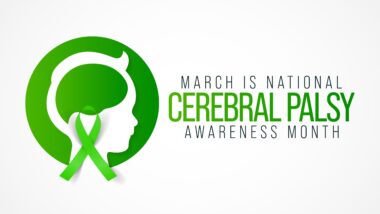Top Class Actions’s website and social media posts use affiliate links. If you make a purchase using such links, we may receive a commission, but it will not result in any additional charges to you. Please review our Affiliate Link Disclosure for more information.
This story was originally published April 6, 2022, a month before a leaked opinion from Justice Samuel Alito showed the Supreme Court apparently intends to entirely strike down Roe v. Wade and Planned Parenthood v. Casey, the court decisions that protect the right to abortion at the federal level.
The Supreme Court issued its opinion June 24, 2022, overturning Roe v. Wade and Planned Parenthood v. Casey: “The Constitution does not confer a right to abortion; Roe and Casey are overruled; and the authority to regulate abortion is returned to the people and their elected representatives.”
Justices Stephen Breyer, Sonia Sotomayor and Elena Kagan dissented, writing: “Today’s decision, the majority says, permits ‘each State’ to address abortion as it pleases. … That is cold comfort, of course, for the poor woman who cannot get the money to fly to a distant State for a procedure. Above all others, women lacking financial resources will suffer from today’s decision.”
Beth Vial was 22 and living in Portland, Oregon, when she found out she was pregnant. It was a shock: Vial has polycystic ovaries, didn’t get her period, and was told she might never conceive.
After unwittingly visiting an anti-abortion pregnancy center that told her she was 16 weeks pregnant when she was actually at 26 weeks, Vial found herself unable to find a provider in Portland willing to perform the abortion.
Vial was forced to travel to New Mexico for the service. She also had to come up with $10,500 for the procedure, plus airfare, food, lodging and other costs — $14,000 in total — all within 10 days.
“When I found out the price, I didn’t think it was going to be possible,” she said. “It was the price that stood in between me and my abortion.”
Vial went into “crisis mode,” calling people who might have access to the money and abortion funds, even while at work, eventually finding a sympathetic ear.
“I would not have been able to afford my procedure if it was not for my proximity to wealth, and I know that has a lot to do with being white and being raised middle class,” Vial said.
Now — with the Supreme Court poised to hand down a decision that could overturn legal abortion in many more states — tens of millions of Americans could soon be facing similar financial hardships trying to access the service, experts say.
This summer, the Supreme Court is set to rule on a highly-watched abortion case in which Mississippi argues that Roe v. Wade — the landmark 1973 decision that for nearly 50 years has guaranteed the federal right to seek an abortion — should be overturned or weakened.
If the court rules in Mississippi’s favor, the power to regulate abortion will fall back to the states, many of which already have laws in place that would ban abortion immediately.
A nation split
If the Supreme Court were to limit or overturn Roe, abortion would remain legal in 21 states and likely would become prohibited in 24 states, according to the Center for Reproductive Rights.
Those states are: Alabama, Arizona, Arkansas, Georgia, Idaho, Indiana, Kentucky, Louisiana, Michigan, Mississippi, Missouri, Nebraska, North Carolina, North Dakota, Ohio, Oklahoma, Pennsylvania, South Carolina, South Dakota, Tennessee, Texas, Utah, West Virginia, and Wisconsin, plus American Samoa, Guam and the Northern Mariana Islands.
Of these, 12 states already have “trigger” bans in place that will immediately ban abortion with limited exceptions — like for medical emergencies, rape or incest.
Trigger bans are in place in Arkansas, Idaho, Kentucky, Louisiana, Mississippi, Missouri, North Dakota, Oklahoma, South Dakota, Tennessee, Texas and Utah.
An additional three states — Florida, Montana and Wyoming — have a political composition and history that show they are likely to ban abortion as soon as possible without federal protections in place, the Guttmacher Insitute says.
Blocking abortion access nationwide
Almost one in four women in the United States seeks and has an abortion by the time they are 45. However, it is estimated 40 million people of reproductive age live in states hostile to abortion, the Guttmacher Insitute says.
If Roe v. Wade is dismantled, those living in abortion deserts would be forced to travel to “abortion havens” to access the service.
This would result in many simply being unable to get an abortion for financial and logistical reasons, or in them taking on debt.
“Any debt taken on to access abortion care will make it more difficult for people to care for themselves and their families,” said Physicians for Reproductive Health fellow Dr. Michael Belmonte, who is an obstetrician-gynecologist in Colorado.
While this would disproportionately affect people that need to travel from other states, the remaining states will be overwhelmed with the influx of new patients, he said.
“This will inevitably lead to patients not being able to get an abortion in a timely fashion, if at all.”
The costs involved
Non-profits already helping those who need money to afford abortion healthcare are poised for an “exponential” rise in need if Roe v. Wade is overturned.
“It is important to recognize that the people most harmed by this scenario are those of low socioeconomic status, communities of color, and those with other children to care for, as traveling, taking time off from work or childcare, and the costs associated with these things would be significant barriers,” Belmonte said.
Of those seeking abortions, 60% are already parents, population data shows.
The cost of an abortion rises the longer you are pregnant. In Illinois, which is likely to be an abortion haven, the cost of the procedure ranges from $440 to $2,880.
Half of Americans don’t have $400 on hand for an emergency expense, and with the minimum wage as low as it is, it can take weeks for people to save the money, We Testify Founder Renee Bracey Sherman told Top Class Actions.
“Unfortunately, abortion is not like other healthcare in that it’s not as simple as finding your local urgent care facility and going for treatment,” she said. “The longer it takes someone to navigate that maze — often without support from loved ones — the cost of the procedure can increase and the places they can actually receive care decreases dramatically.”
If the pregnant person cannot raise the funds to pay to abort an unwanted pregnancy, the financial implications can be devastating, the Turnaway Study, a landmark, 10-year research piece from the University of California San Francisco, found.
Those turned away from abortion healthcare and who went on to give birth experienced an increase in household poverty lasting at least four years relative to those who received an abortion, the study found. It also lowered a woman’s credit score, increased their amount of debt and increased the number of their negative public financial records, such as bankruptcies and evictions.
There will also be an expense to the taxpayer should state governments be funneling resources to “prosecute, criminalize, and jail people because of their pregnancy outcomes and suspicion of self-managing their abortions,” Sherman said.
How will women be able to afford abortions if Roe v. Wade is dismantled?
The National Network of Abortion Funds (NNAF) leads a nationwide coalition of 80 non-profit organizations that work to remove financial and logistical barriers to abortion access. It is one of a number of national non-profits that fundraises to help women pay for an access abortion healthcare where insurance falls short.
However these resources are going to be dangerously stretched if Roe v. Wade is overturned, Chicago Abortion Fund executive director Megan Jeyifo said.
Last year her city’s fund helped about 3,000 people to access funds and resources for their abortions. They expect that number to shoot up if Roe v. Wade is dismantled.
“I’m terrified. I don’t think there’s any other way to put it,” Jeyifo said. She said the fund currently averages about 110 to 140 calls weekly from people needing help accessing funds or Medicaid for abortion healthcare. “We anticipate the need to just increase exponentially.”
Illinois has long been a receiving state for people from nearby states with more restrictive laws, and the number of those needing help has only risen since the law change in Texas last year.
Jeyifo added that, while people in a position to get abortion pills and keep them in a medicine cabinet now might be wise to do so, there would also be many people who needed or wanted to see a clinic for their abortion.
“Telehealth hasn’t eliminated the need for clinics. We need to see abortion rolled into every other reproductive health service that is covered.”
The Texas example
On Sept. 1, 2021, a near-total abortion ban went into effect in the state of Texas, outlawing abortion past the stage of fetal heartbeat, about six weeks gestation — before most people even know they’re pregnant.
The state is serving as a taste of what it could look like for millions more abortion healthcare seekers if Roe v. Wade is overturned.
The average one-way driving distance to an abortion clinic for a woman living in Texas has increased 14-fold, from 17 miles to 247 miles, the Guttmacher Institute calculated, along with estimates of what it will look like for other states.
For example, the average one-way driving distance to access abortion services for the 1.1 million people of reproductive age in Louisiana would increase from 37 miles to 666 miles.
What about insurance?
As of January 2022, Medicaid covers all or most medically necessary abortion in 16 states in the U.S.
However, if a woman wants to use Medicaid to cover their abortion, they must live in and have the abortion in the same state. A woman’s Medicaid coverage will not follow them if they need to travel out of state, and in most states Medicaid coverage is restricted by the Hyde Amendment.
Private insurance has its own barriers, too. Not all policies cover abortion healthcare, and if restrictions are in place in a state, it is unlikely that a private or employer-sponsored insurance plan would continue to cover abortion care.
Will any legal recourse be available for those left out of pocket?
It would be unlikely that someone would be able to sue their state for the cost of their abortion if Roe v. Wade is overturned, despite the clear financial harm predicted for millions of Americans, Belmonte told Top Class Actions.
It is also important to recognize that while the time to obtain an abortion is limited, the courts move slowly, and lawsuits are expensive, he said.
“This would be cost-prohibitive for someone who is already of limited means and most people would not feel comfortable being part of a multiyear public lawsuit on abortion.”
Meanwhile, people like Beth Vial — who are grateful they were able to access abortion healthcare in the past — are starting to pour their spare time into fundraising for others should Roe v. Wade be overturned, while hoping that isn’t the case.
“We’ve spent all this time destigmatizing the word abortion, and making sure it’s accessible and in the light, and Texas has very quickly regressed in a way that we all feared,” Vial said. “We are really hoping this wasn’t as much of a possibility as it presently is.”
An earlier version of this story incorrectly spelled Chicago Abortion Fund executive director Megan Jeyifo’s last name as Jefiyo. Top Class Actions regrets the error.
[getsocial app=”sharing_bar”]
Don’t Miss Out!
Check out our list of Class Action Lawsuits and Class Action Settlements you may qualify to join!
Read About More Class Action Lawsuits & Class Action Settlements:
- TCA Explains: What Are Arbitration Agreements And How Do They Affect Class Action Lawsuits?
- UK Braces for Worse as War in Ukraine Exacerbates Growing Oil and Gas Price Crises
- March is Cerebral Palsy Awareness Month: Here’s what you need to know
- What’s the status of mask mandates, related lawsuits, after the omicron wave?
ATTORNEY ADVERTISING
Top Class Actions is a Proud Member of the American Bar Association
LEGAL INFORMATION IS NOT LEGAL ADVICE
Top Class Actions Legal Statement
©2008 – 2024 Top Class Actions® LLC
Various Trademarks held by their respective owners
This website is not intended for viewing or usage by European Union citizens.
Don’t Miss Out!
Check out our list of Class Action Lawsuits and Class Action Settlements you may qualify to join!















36 thoughts onWith abortion laws changing this year, millions of Americans will be financially harmed, experts say
Pls add me
This affects me
Add me I don’t want children I suffer from mental health issues add me
Add me please and thank you!
Please add me
Since 1972 women gained freedom human rights to control thier own bodies. Now women are back in jail controlled by the church.
If you have never been raped, you have no idea what a woman goes through…the trauma, the humiliation, the anger, the depression, the fear of not being able to handle raising a child that will forever remind you of your rapist, etc.. What about being told you have endometriosis, but you get pregnant anyway?? What if the fetus dies before it is born…is a woman expected to carry that dead fetus to term? What if the mother suddenly develops medical issues that can harm/kill her and/or the fetus? Or, who will take of that new baby when the mother is not capable mentally, emotionally, financially, etc.? Because we’re women, we have to lose our rights over our bodies?? Women deserve the same rights over their bodies as men do!! This will cause women to have to resort to the old illegal harmful methods of abortions. This is a private matter and it is my body, my choice!! I defend reproductive rights!!! What rights will they take away from us next??
Please be reasonable people don’t change this law. A woman’s choice should stay her own. If you as an individual feel so strongly about children not being born then go out and take care of all the children that are already here and in need !!!